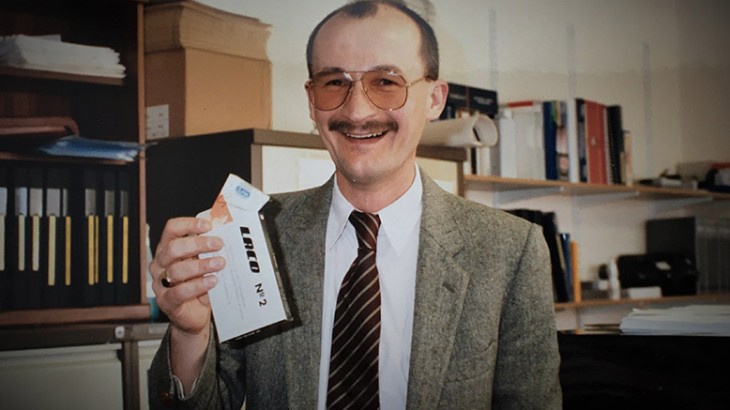Mood of change

In last week’s story about principal engineer Jan Kojro’s career here in the 1980s, we recalled his time in the Middle East. In part four of his work memoirs, we bring you the 90s and Jan’s time in Leeds.
‘The time came to return to the UK,’ said Jan. ‘We had boy number two in Qatar and had settled into life in our adopted country. However, I was anxious to ensure that my global meanderings did not have an impact on our children’s education and prospects for the future, so the decision was made.
‘Something was also happening in the UK. There was a buzz about the place and I felt a little left-out in our remote outpost. It was certainly a different country to the one we had left; the three-day week, the power cuts, the miner’s strike and a “winter of discontent” were replaced by customer service, customer choice, customer feedback and quality of service – all terms that hadn’t been in the vocabulary of 1970s Britain.
‘This mood of change was also reflected in the Post Office. For starters, I came back to Royal Mail – we even had a mission statement. But that wasn’t the only change, Quadrant, RoMEC, Parcelforce, NDC to name but a few, we had developed a whole new internal market.
‘I relocated to a job in York on my return as district engineering manager. Under the terms of my overseas contract, I didn’t have the right of return to my home office, but York is a great place – it’s in God’s own county and it allowed a retirement vacancy to be filled. Yes, we did that sort of thing in those days! It also satisfied my instinct to move on and discover what was around the corner. After all, I had returned triumphant from my successes in the Middle East and the business seemed to be moving towards the realities of the tough commercial enterprise environment I was now experienced at working in. The reality, however, proved to be somewhat different.
‘It’s a well-known phenomenon that many ex-pats find it difficult to return to the UK and settle. The excitement of large-scale projects and the autonomy in decision making created a compelling desire to return to a certain way of life and I fell into that trap. To compound the situation, British Postal Consultancy Service (BPCS) had already contacted me with the offer of a new project in Seoul (and I didn’t even have to look that one up!).
‘My future could have taken a completely different direction, but for the wise counsel of the district head postmaster, who reminded me of my original reasons for moving back to the UK. For better or worse, I was here to stay. I didn’t have to wait long however, before change and with it, opportunity came knocking again. The country was divided into 64 or so districts from memory and a major change programme was put in place to consolidate these into divisions, which roughly equate geographically to what we’ve seen in recent years. The headquarters of the new north-east division was to be Leeds and my new base for the rest of the decade.
‘Disillusioned with the lack of progress in postal automation, I applied for jobs in a newly created function, Facilities Management, which we tend to call “asset management” nowadays. I was appointed as the property maintenance manager in Leeds, tasked with setting up service supply contracts for infrastructure maintenance. It was a good period for me, the sort of thing I liked, a new venture and something I hadn’t done before. I’d always had a soft spot for the built environment and I’m still a “weekend builder” and keen DIYer to this day.
‘My next move came quite quickly and within two years, I took the post of divisional major projects manager. The North East was going through a boom period as far as capital investment was concerned and with more than 40 new delivery office projects on the go and three new mail centres, it was certainly a busy period involving large teams of planners from the division and resources from Property Holdings, the estate professionals that managed our property portfolio.
‘With over 100 managers just in the North East, not including staff working on the day to day running of the estate, it wasn’t long before another initiative for change was launched. The consultants moved in and by the close of the decade, the divisional structures had all but disappeared through a major transformation and centralisation programme.
‘My role as the head of property and facilities management was to manage the placement, relocation and redundancy of over 100 managers. This had to happen within the same timeframe of closing the divisional building as the mail operation was transferred to the new mail centre at Stourton. From a project point of view, it was an exciting time, but what I remember most vividly is the way it affected the people involved. No-one was treated badly, but still emotions run very high when relationships that have lasted years, and in some cases, entire careers, are broken up.’



